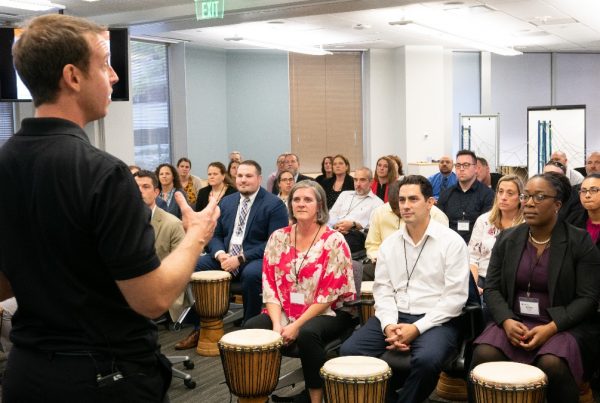Success first, then comes happiness. That’s been the driving belief for generations. Focus, compete, climb the ladder, earn the title, buy the house, own the car … and the assumption is that happiness will then follow. Perhaps that approach may have worked well during the time of the Industrial Revolution, but successful employees in the modern world are not feeling the happiness. In fact, 60% of full-time US employees report feeling stressed out all or most of the time at work, according to a recent study by the Udemy research team.
Could it be that we’ve put the cart before the horse, and that happiness precedes success? Research in the fields of neuroscience and psychology are now pointing to the conclusion that this just may be the case. According to the American Psychological Association, many studies have found that happy people are more likely to experience success at work and in their personal lives. Most interestingly, these studies find that happiness precedes success, and that happiness is associated with behaviors that then produce success.
Why does happiness produce success? Neuroscience research tells us that one reason is because happiness makes our brains work more efficiently. Serotonin and dopamine, two brain chemicals associated with happiness, improve mental focus, problem-solving, memory and the ability to simultaneously process multiple pieces of information. In 2018, Stanford researchers found that when we like a subject we are learning about, we have increased activity in our hippocampus, a part of the brain connected with memory and learning. In other words, when we’re happy doing what we’re doing, we do it better.
So how do we practice happiness along the way to success? In his recent article in Forbes, Author Nick Bennett suggests the four practices below.
Seek meaningful engagement
Meaningful engagement comes from leveraging our strengths in a way that is a contribution to our community and our world. When we contribute to the happiness of our fellow humans, we end up happy ourselves. In the words of Martin Seligman, one of the fathers of positive psychology, “Use your signature strengths and virtues in the service of something much larger than you are.”
Practice mindfulness
There is so much research out there on the benefits of mindfulness that to recap it all would be the focus of another article entirely. Suffice it to say, that when we align ourselves with the present moment, our happiness increases.
Nourish connections
In his book, The Happiness Advantage, Shawn Anchor writes, “Countless studies have found that social relationships are the best guarantee of heightened well-being and lowered stress, both an antidote for depression and a prescription for high performance.” When the going gets tough, the happy reach out to others instead of walling themselves off.
Build EQ and soft skills
Research published in the Journal of Applied Psychology found that higher emotional intelligence (EQ) is associated with lower levels of stress, an enhanced sense of well-being, and improved quality of relationships. Practicing soft skills like empathy, listening and self-awareness go a long way in our professional lives, as well as in our personal lives.
Are you ready to put the horse before the cart and move your team in the direction of success through happiness?





